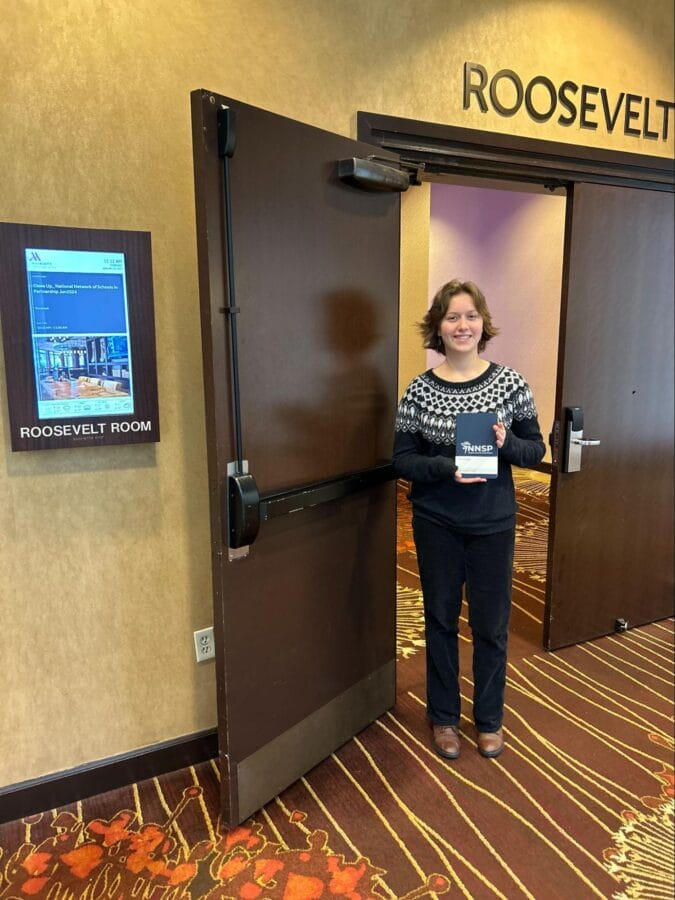
January 29, 2024
By Jenna Fournel, Director of Teaching and Learning
This month we held two Speak Truth seminars in which high school students deliberated the question: “Should the voting age be lowered to 16?”
In both our online and in-person events, students, most of whom were a lot closer to 16 than 18, really struggled with whether a teenager knows or has experienced enough to handle voting. This invited the question of how we might determine competence for this civic responsibility. And that led to a discussion about the role equity plays in opportunities to engage with democracy. The students charted the course of these conversations, which were thoughtful and complex.
Society likes to paint a picture of teenagers as know-it-alls who make bad decisions and can’t think beyond themselves to imagine their impact on the wider world. But in two separate conversations with two different groups of students from more than a dozen different schools, one thing was clear to the adults observing in the room: the students were thinking more deeply about what it means to be able to vote than those with the right usually do.
One of the students who joined us for these conversations was Sarah Lydia McCoyer, a current 9th grader at Benjamin Banneker High School in Washington, DC. She also facilitated a Speak Truth session for adults on the topic of censorship at the National Network of Schools in Partnership conference last week. We interviewed her about these experiences and asked her what is drawing her to them. She said she appreciates that “the adults recognize that we’re responsible enough and we’re capable enough, to share our ideas and discuss difficult topics with one another on our own.”
Her advice to teachers who are considering bringing student-led discussion into their classrooms is to be open to deviating from proscribed structures so students have the autonomy to express themselves in their own ways:
Don’t be afraid of kids taking things in their own direction, and changing your lesson plan. Part of Speak Truth is that we all have really rich experiences and ideas and maybe a child doesn’t feel that they can share those experiences or ideas in the lesson plan that you’ve laid out, but they can share it if they just ‘derail the conversation’ for a few minutes. Let kids be kids. Kids are more articulate than I think some adults expect and we can share ideas in wonderful ways that don’t adhere to [the classic essay structure of] ‘introduction, body paragraph one, body paragraph two, [body paragraph 3] conclusion’.
Perhaps society fears teenagers precisely because they see through the hypocrisy that characterizes a lot of how we live as adults. We teach them voting is important, but we fail to use our power to defend voting rights for everyone. We tell them to be innovative changemakers, and then we ask them to summarize what that means in a rigid five-paragraph essay.
We have so much to gain if we trade our fear and judgment for curiosity. Today’s youth have so much to teach us if we are willing to learn.
For additional insights, resources, and information on Inspired Teaching teacher and youth programming, subscribe to the Hooray For Monday newsletter!

